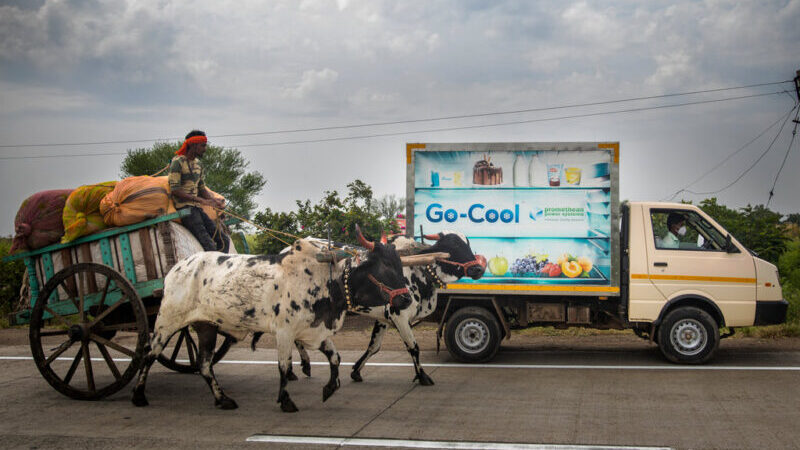For about an hour I had no energy. I crashed on my bed. I was sweating profusely and extremely irritable, in no mood to talk to anyone.
No, I had not done any high-intensity training or run a marathon. I had simply left my home in Delhi around 3pm to drop my six-year-old son at a friend’s house, less than two kilometers away.
India had its hottest March on record. Now we are in a heatwave, with top temperatures exceeding 40C (100F) in many parts of the country. This is what climate change, driven by burning fossil fuels, feels like. Unbearable.
I ditched my car that day, thinking I could walk a short distance. My son, fortunately, was not too badly affected, busily playing with his friend after gulping a bottle of juice. But I had learned my lesson. No more walking mid-afternoon.
The problem is, many of the options to make the heat more tolerable involve either somebody else’s sweat or burning more fossil fuels.
A couple of days later, returning from the office, I took a cycle rickshaw, pulled by a man who must have been in his mid-40s. Throughout the 15-minute ride to my home, the rickshaw puller, a Muslim, kept quiet. But while waiting at a red light he said he would not be able to maintain his Ramadan fast until evening because of the heat.
During my journey home I saw many others who were out in the heat to earn a living, mostly men. There were fruit and vegetable sellers, people working at repair shops, hawkers of all descriptions.
They were sweating and seeking shade under the few trees, their heads covered with gamcha (a small white scarf that is popular in northern India). I had likewise worn a scarf on my excursion. It can reflect the sunlight and draw sweat away from the body. But these traditional methods of coping have their limits.
After my bout of heatstroke, I decided not to go out without my vehicle no matter how hard it hits my monthly budget – a reality considering the rising prices for petrol, diesel and gas. I vowed to keep all my meetings in the mornings or late afternoon – avoiding the hottest 3-4 hours.
IMF’s resilience fund ‘out of reach’ for some nations in need
And I thought of the people who cover the length and breadth of the city to deliver food and consumer goods. I asked the lady who helps me in managing the house to not go out to buy groceries and order them online with a preferred delivery time of morning or evening. I put out a bowl of water for birds and animals.
I have the privilege to own a car and air conditioning at home. These run on fossil fuels, making global heating worse. But even the richest 10% of Indians have smaller carbon footprints than citizens in developed countries, which bear the biggest responsibility for the situation we find ourselves in.
As a regular consumer of news, I read about deadly heatwaves in Rajasthan, or regions of Pakistan, that are even worse hit. What must be happening to people there is just too scary to even think about.
Climate scientists warned us summers would get hotter. That is now unfolding and it won’t stop until we all end our dependence on coal, oil and gas.
What we need now is to have all hands on deck – come together, stop working in silos and find solutions now. There is no other way to tackle this but to join hands – rich and poor – because when climate change impacts intensify, the ones with more resources won’t escape the impacts either.
It is time we start looking at better public transport, energy-efficient systems and learn how we can make changes in our daily lives to help.
